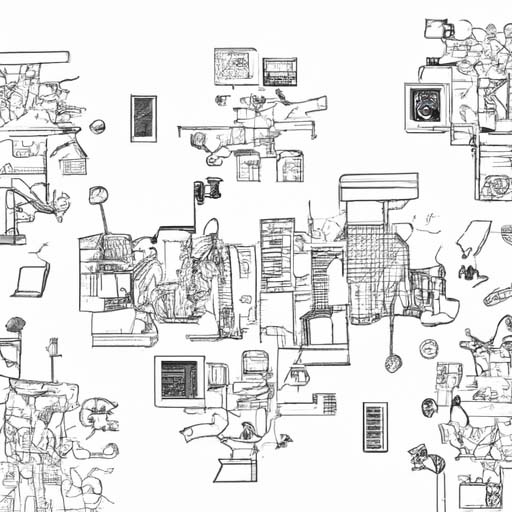Welcome to our article on sustainable automation – machines for a greener future! In this digital age, the intersection of technology and environmentalism has become increasingly important.
Today, we will explore how automation technologies can help combat climate change and promote sustainability. From reducing carbon emissions to increasing energy efficiency, the potential for machines to contribute to a greener future is immense. So, let’s dive in and discover how sustainable automation can revolutionize our planet!
The Role of Automation in Combatting Climate Change
Climate change is an urgent global challenge that demands immediate action. One significant way automation can make a difference is by reducing carbon emissions. Traditional manufacturing processes often rely on fossil fuels, resulting in high greenhouse gas emissions. By incorporating automation technologies, we can optimize processes in a way that minimizes energy consumption and waste production.
Additionally, automated systems can play a vital role in renewable energy production. Solar panel manufacturing, wind turbine assembly, and hydroelectric power generation can all be streamlined with the help of automation. Not only does this increase efficiency, but it also decreases the reliance on non-renewable energy sources, making a positive contribution to the fight against climate change.
Energy Efficiency and Automation
Energy efficiency is a key component of sustainability. It involves using less energy to accomplish the same tasks or achieving more with the same amount of energy. Automation technologies excel in improving energy efficiency across various sectors.
For instance, in transportation, self-driving vehicles powered by automation can optimize routes, reducing fuel consumption and minimizing traffic congestion. Intelligent energy management systems within buildings can ensure efficient heating, cooling, and lighting based on occupancy patterns. By implementing automation-driven energy monitoring and control, businesses and households can significantly reduce their carbon footprint.
Smart Cities and Sustainable Automation
The concept of smart cities is gaining momentum as urban populations continue to grow. Sustainable automation plays a crucial role in the development of these intelligent urban environments. By using advanced sensors and interconnected systems, smart cities can optimize resource allocation, reduce waste, and enhance quality of life.
With automation, cities can efficiently manage water distribution, waste management, and energy consumption. Smart grids enable the integration of renewable energy sources into the existing power infrastructure, promoting sustainability. Furthermore, automation can lead to the prompt identification of leaks or faults in utility systems, preventing further environmental damage.
Agriculture and Automation
The agricultural sector is not exempt from the benefits of sustainable automation. Precision farming techniques, empowered by automation technologies, allow for precise application of fertilizers, pesticides, and water. This targeted approach minimizes waste while maximizing crop yield. Additionally, robotics can help with labor-intensive tasks, reducing the need for harmful chemicals and human intervention.
Furthermore, automated systems can optimize irrigation schedules, ensuring water is used sparingly and efficiently. By integrating machine learning algorithms, farmers can analyze vast amounts of data to make informed decisions about crop health and yield optimization. Ultimately, sustainable automation in agriculture promotes resource conservation and reduces environmental impact.
The Future of Sustainable Automation
As technology advances and the urgency of environmental challenges grows, sustainable automation will continue to evolve. Innovations such as artificial intelligence, machine learning, and the Internet of Things hold immense potential for creating a greener future.
It is essential for businesses, industries, and policymakers to actively embrace and invest in sustainable automation technologies. By doing so, we can drive positive change towards a more environmentally conscious society. Together, we can harness the power of machines to combat climate change, promote sustainability, and create a greener future for generations to come.
